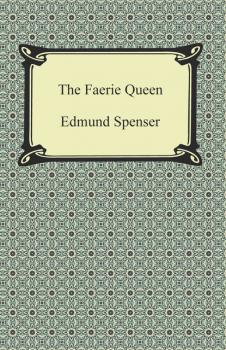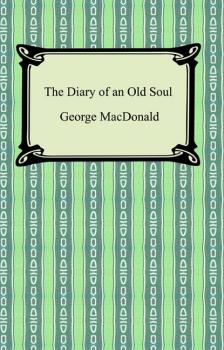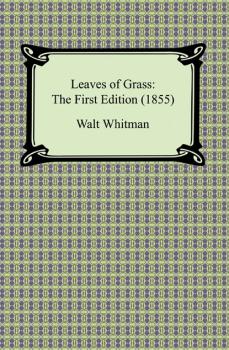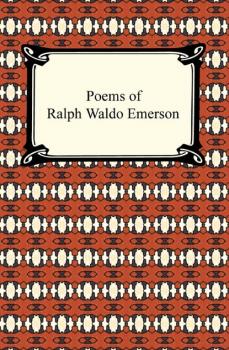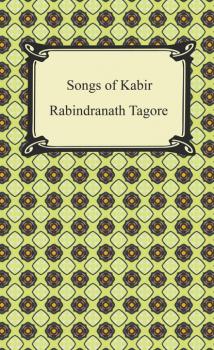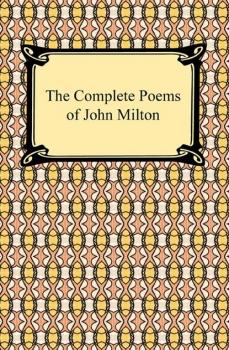ТОП просматриваемых книг сайта:
Зарубежные стихи
Различные книги в жанре Зарубежные стихи, доступные для чтения и скачиванияАннотация
Considered to be one of the most difficult poems in the history of the English language, «The Faerie Queen» by Edmund Spenser is a marvelous epic poem depicting the virtues of the legendary King Arthur and his knights in a mythical place called Faerieland. Spenser based his interpretation of the virtues on those named by Aristotle and Thomas Aquinas. Each one of the seven books discusses a different hero who displays one of these virtues; however, this entire collection was meant to be a tribute to Queen Elizabeth and the Tudor family. The stories are intricate and sometimes hard to understand. The language follows Spenserian prose and is intentionally archaic; Spenser wanted his work to have a mythical feel rather than being a modern piece. Each work was specifically chosen to evoke a certain feeling or image, allowing Spenser to make the world of Faerieland have an enchanting feeling. All readers who make their way through the text find that they are rewarded by the epic poem's masterful plots and inventive setting. Many refer to «The Faerie Queen» as early science fiction, since Spenser merges a mystical Faerieland with Arthurian legend. Students of history and literature will enjoy this timeless classic for its challenging rhetoric, but also for its vivid depictions and stunning allegorical significance.
Аннотация
"The Diary of an Old Soul" is a collection of 366 daily Christian devotional poems by Scottish author, poet, and Christian Minister George MacDonald. Known primarily for his fantasy works and fairy tales, MacDonald was heavily influenced in his life and his writings by theology. This influence can easily be seen in «The Diary of an Old Soul» as well as in many of his fictional works too.
Аннотация
"A Child's Garden of Verses" is Robert Louis Stevenson's classic collection of children's poems. The following poems are included: To Alison Cunningham, Bed in Summer, A Thought, At the Sea-Side, Young Night-Thought, Whole Duty of Children, Rain, Pirate Story, Foreign Lands, Windy Nights, Travel, Singing, Looking Forward, A Good Play, Where Go the Boats?, Auntie's Skirts, The Land of Counterpane, The Land of Nod, My Shadow, System, A Good Boy, Escape at Bedtime, Marching Song, The Cow, The Happy Thought, The Wind, Keepsake Mill, Good and Bad Children, Foreign Children, The Sun Travels, The Lamplighter, My Bed is a Boat, The Moon, The Swing, Time to Rise, Looking-Glass River, Fairy Bread, From a Railway Carriage, Winter-Time, The Hayloft, Farewell to the Farm, North-West Passage, The Unseen Playmate, My Ship and I, My Kingdom, Picture-Books in Winter, My Treasures, Block City, The Land of Story-Books, Armies in the Fire, The Little Land, Night and Day, Nest Eggs, The Flowers, Summer Sun, The Dumb Soldier, Autumn Fires, The Gardener, Historical Associations, To Willie and Henrietta, To My Mother, To Auntie, To Minnie, To My Name-Child, To Any Reader.
Аннотация
In response to Ralph Waldo Emerson's call for the United States to have its own unique poet, Walt Whitman rose to the challenge to create what would ultimately be his most profound work. Taking its title from the colloquial term «grass», meaning a work of minor value, Whitman's «Leaves of Grass» is anything but that. Over his lifetime Whitman would continue to expand and revise his most famous book up until his death in 1892. Here in this volume we reproduce the short collection of twelve poems of the very first edition, originally published in 1855.
Аннотация
Ralph Waldo Emerson is best known as being a leader of the transcendentalist movement, a philosophy that emerged in the mid 19th century in New England. Transcendentalism was a general protest against established society and culture at the time that sought an ideal spiritual state that 'transcends' the physical and empirical and is only realized through the individual's intuition, rather than through the doctrines of established religions. In this collection, which includes such favorite poems as «The Rhodora,» «Uriel,» «The Humble-Bee,» «Earth-Song,» «Give All to Love,» and «Concord Hymn», the reader will find Emerson's poetic expression of this philosophy. In total there are over 150 poems in this volume along with reproductions of the photogravures that accompanied the original edition.
Аннотация
Alfred Tennyson is one of the foremost poets of Victorian England and is studied today for his deeply intellectual and classic style. He was the Poet Laureate of the United Kingdom from 1850 to his death in 1892. He was a favorite of Queen Victoria, and she even made him a baron out of respect for him and his works. Many of his poems focus on classical Greek, Roman, and Medieval mythology. One such poem is the Arthurian-inspired ballad «The Lady of Shallot.» The poem centers on a mysterious woman with a curse; she can never look at the real world directly. Instead, she has to look through a mirror and enjoy the world through others. Yet when she sees the handsome Lancelot in the mirror, she turns around to see him in person. This action ultimately causes her death, as she disobeyed her curse. Another work penned by Tennyson is «Ulysses,» which many other poets and thinkers have called the most perfect and most complex poem ever written. Tennyson wrote the epic in blank verse as the Roman hero Ulysses muses about his discontent while returning to his kingdom of Ithaca. These two and many other great works are contained in the collection of «The Major Works.»
Аннотация
This uncompleted suite of poems by French poet Arthur Rimbaud was first published serially in the Paris literary review magazine «La Vogue.» The magazine published part of «Illuminations» from May to June 1886. Paul Verlaine, Rimbaud's lover, suggested the publication of these poems, written between 1873 and 1875, in book form. All forty-two of the poems generally considered as part of «Illuminations» are collected together here in this edition. Of these forty-two poems almost all are in a prose poem format, the two exceptions are «Seapiece» and «Motion», which are vers libre. There is no universally defined order to the poems in «Illuminations», while many scholars believe the order of the poems to be irrelevant, this edition begins traditionally with «Après Le Deluge» or «After the Flood.» Albert Camus hailed Rimbaud as «the poet of revolt, and the greatest.» The worth of this praise for Rimbaud can be seen in «Illuminations», one of the most exemplary works of his poetic talent.
Аннотация
Rabindranath Tagore (1861-1941), the first non-European to receive the Nobel Prize for Literature (1913), was a Bengali poet, novelist, musician, painter and playwright. Tagore modernized Bengali art and literature by rejecting classical forms, and produced strongly poetic and spiritual works. In addition to his original writings, Tagore's translations have been revered throughout both the Eastern and Western worlds, earning him the respect of such literary figures as W.B. Yeats, Ezra Pound, and Gandhi protégé, Charles F. Andrews. Tagore translated the «Songs of Kabir» in 1915; his poetic writing style and prophet-like persona contribute to the spiritual nature of the work. Kabir (1440-1518) was a mystic poet and saint of India who inspired the Kabir Panth, a religious community, one of the Sant Mat sects, of nearly ten million members. His poetry integrates the philosophies of Sufism, Hinduism and the Kabbalah, accepting the concepts of reincarnation and Karma, as well as the affirmation of a single god and the rejection of the cast system and idolatry.
Аннотация
John Milton, the 17th century English poet author, polemicist and civil servant for the Commonwealth of England is of course known best for his famous epic poem «Paradise Lost» which retells the biblical story of «The Fall of Man» and how Adam and Eve were tempted by Satan and ultimately expelled from the Garden of Eden. «Paradise Lost» is included in this volume of «The Complete Poems of John Milton» along with its sequel «Paradise Regained» and thirty-nine additional poems.
Аннотация
The simple and beautiful eloquence of William Blake's poetry is exemplified here in «Songs of Innocence and of Experience.» This collection of forty-six poems is actually two volumes in one. After first completing and publishing «Songs of Innocence» in 1789 Blake would, some five years later, add «Songs of Experience» to the volume in an effort to show «the two contrary states of the human soul.»

